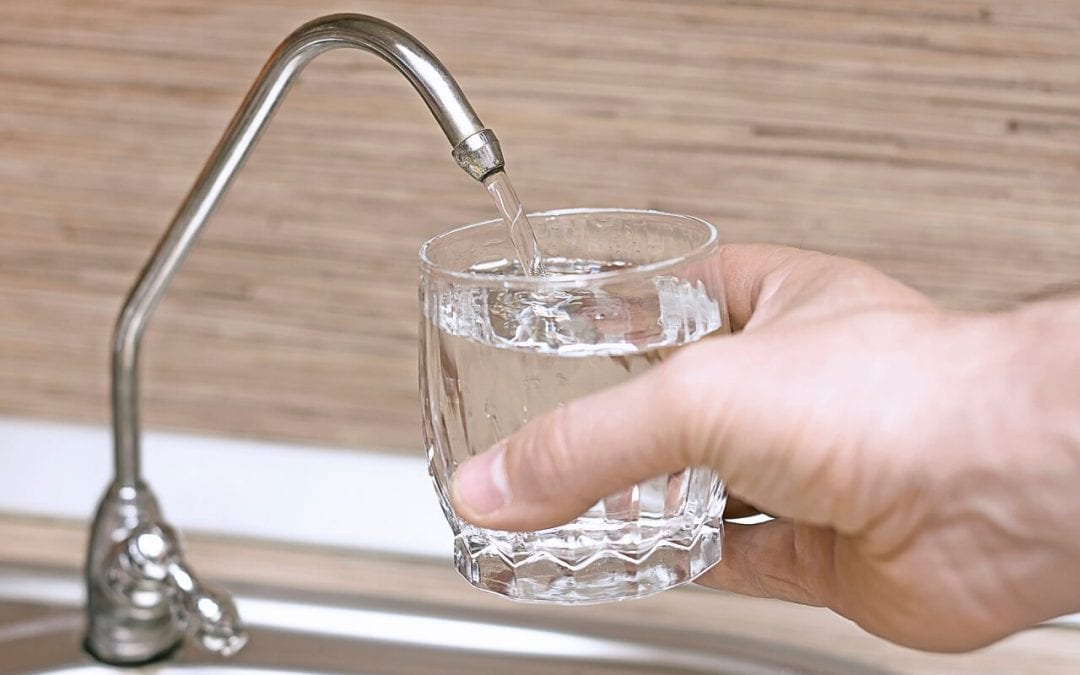There are many types of home water filters that remove different contaminants. It is a good idea to filter your home water, but it’s important to choose the right type of filter for your property. Here is a breakdown of the pros and cons of different water filters.
Activated Alumina Water Filter
This is one of the types of home water filters that removes arsenic, fluoride, and selenium, but does not remove other common contaminants.
Pros:
- Affordable
- Works very well to remove arsenic, fluoride, and selenium
Cons:
- It is limited to the number of contaminants it removes.
Types of Home Water Filters: Activated Carbon
Activated carbon filters trap pollutants inside pores. This filter is highly effective in removing chlorine and other organic compounds.
Pros:
- Affordable
- Useful for eliminating volatile organic compounds (VOCs), sediment, and chlorine
- Doesn’t require electricity
- Improves smell and taste
Cons:
- Won’t get rid of dissolved inorganic compounds, salts, or minerals
Ceramic Water Filter
This type of water filter is made from ceramic with tiny pores. It filters out anything larger than the pores as water runs through it. These filters can eliminate bacteria and prevent algae and mold from building up.
Pros:
- Affordable
- Lowers protozoa and bacteria levels
- No electricity needed
- Easy to set up and use
Cons:
- Slow
- Needs to be combined with another filter to remove additional contaminants
Reverse Osmosis
This is one of the more recognizable types of home water filters. Water runs through a semipermeable membrane and contaminants can’t get through the pores. Reverse osmosis effectively removes chemicals and heavy metals.
Pros:
- Doesn’t need electricity
- Gets rid of viruses, parasites, and a wide range of pollutants
Cons:
- More expensive and bulky than other options
- High water pressure is needed.
- Reverse osmosis wastes a lot of water.
UV Water Purifier
An ultraviolet purifier uses high-frequency light and a glass element to irradiate the water, which kills off microorganisms.
Pros:
- Kills viruses, bacteria, and parasites
Cons:
- Expensive
- Doesn’t get rid of fluoride or minerals
- Needs electricity
Types of Home Water Filters Include Water Distillation
Distillation is a high-efficiency water purification process where water is boiled into steam. The steam is then cooled and turned into a liquid. The liquid then fills a container. This type is normally used as a countertop model.
Pros:
- Kills bacteria and gets rid of most contaminants
- Improves taste and smell
- Doesn’t require replacement parts
Cons:
- Needs electricity
- A slow way to purify water
Types of Water Filters for Your Home
- Pitcher filters: Most commonly used because they are affordable and portable
- Faucet water filters: Generally inexpensive and attach to the faucet
- Shower-head filters: Removes pollutants from the water in your shower
- Countertop water filters: These sit on the counter, connect to your faucet and purify as you turn on the faucet.
- Under-the-sink filters: Larger and more expensive options that filter large amounts of water quickly
- Whole-house systems: Connect right at the main water line and purify water before it enters your faucets or showerheads
Research the various types of home water filters and then choose the one that fits your needs and budget. Before you decide on a type of water filter, have your home water tested so that you know which contaminants you need to remove.
Rock River Inspections provides home inspection services and water testing to the Greater Houston area. Contact us to schedule an appointment.

